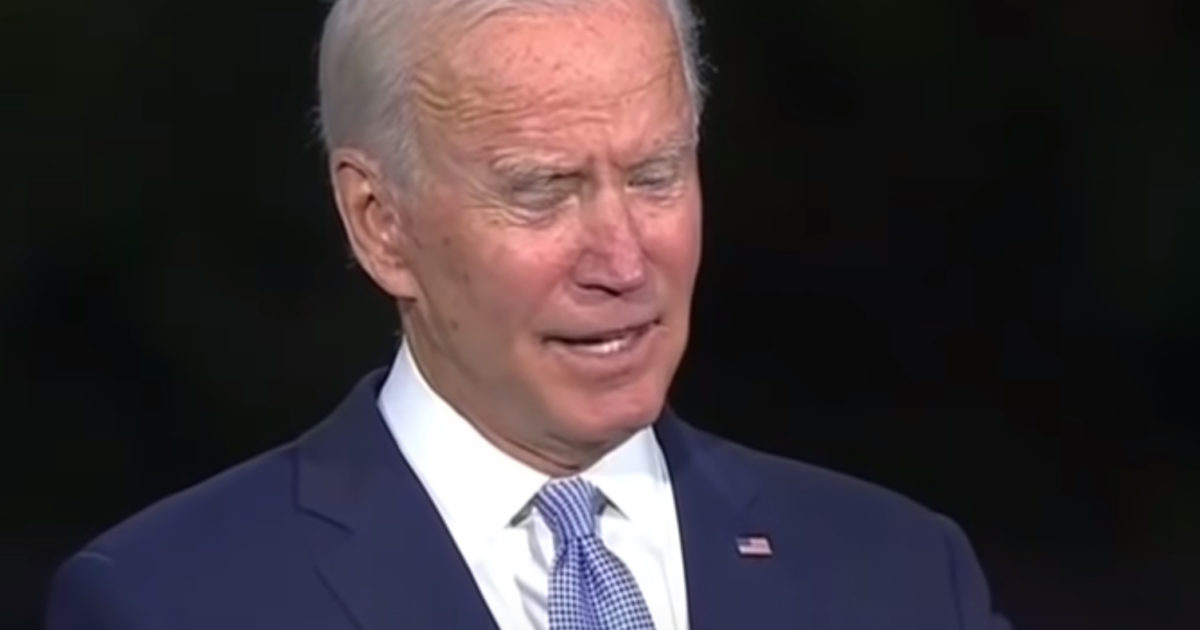Over the past few weeks, I’ve heard rumblings among those Republicans who accept the election results that Joe Biden was set to appoint Bernie Sanders as Treasury Secretary. At least that will get him out of Congress, or so the joke goes. But the real news is even better. The Biden Administration is reportedly steering clear of Sanders and other leading progressives.
In a recent article, Politico reports that the incoming Biden Administration is signaling that it will not consider prominent progressives such as Sanders and Elizabeth Warren for cabinet positions. This prompted Luke Savage in the Jacobin to complain that Biden was “freezing out” the pair.
“Despite spin to the contrary, it’s the latest sign that the Biden team is planning to govern from the extreme center — and that we’ll have to push him to win any progressive gains,” Savage said.
The reality is not that simple. Although Biden is the most moderate Democrat who had a real shot at the nomination, there are strategic forces at play that also make sticking to the center an attractive route for Biden. Much of his moderation will a necessity due to the poor showing of down-ballot Democrats. Republicans are likely to remain in control of the Senate when the dust settles in Georgia and Nancy Pelosi will have a narrower majority in the House next year.
This reality leads Biden to a couple of conclusions. The first is that confirmations will be difficult in a Republican-held Senate. If far-left Democrats are appointed to Biden Administration positions, they will have very difficult nomination fights and may end up being rejected. Cabinet nominations cannot be filibustered thanks to Harry Reid’s implementation of the nuclear option, but if Republicans hold a majority they can vote down controversial nominees.
The second problem for Biden is that congressional leaders will not want to sacrifice votes in a narrowly divided Congress. Some potential cabinet appointments might be hard to replace with reliable Democrats. Elizabeth Warren represents Massachusetts, where a Republican governor would appoint her replacement unless the Democratic legislature amends the process. In some states, the process to fill seats left by appointees departing to join the Biden Administration might take time to complete, leaving congressional Democrats at a competitive disadvantage for weeks or months.
Democrats would also not want to put untried candidates in swing states and districts where they might lose a competitive special election. The Trump-era saga of Jeff Sessions’s seat, which eventually went to Democrat Doug Jones for several years, is a cautionary tale about appointing executive branch officials from even seemingly safe states. Republicans won back the seat this year after losing it in 2018.
There have been several hints at possible Biden appointees, Politico noted. These include:
- Sen. Doug Jones (D-Ala.) for attorney general
- Sen. Tom Udall (D-N.M.), who is retiring, for Department of the Interior
- Sen. Chris Coons (D-Del.) for secretary of state
- Rep. Karen Bass (D-Calif.) for Health and Human Services or UN ambassador
- Rep. Cedric Richmond (D-La.) for an unspecified position
Rep. Bass, along with Rep. Barbara Lee (D-Calif.) are also leading candidates to replace Kamala Harris in the Senate as she leaves to become vice president.
Whatever the reason, bringing moderate Democrats to Washington rather than farther-left progressives is a good thing. If the parties start from a point closer together, it will make it easier to find bipartisan consensus on problems that the country faces. Ultimately, that is what government is about.
It’s also good for both parties. From a Republican perspective, center-left Democrats checked by a Republican Senate are less likely to push for radical change. For the Democrats, not going too far left makes it more likely that they can hold or expand their majorities in 2022 and 2024.
As I wrote after the election, the decision rendered by the American people seems almost miraculously equitable. In large part, the election was a rejection of extremism on both sides as voters sent President Trump packing but refused to hand over Congress to the Democrats. America has often thrived under divided government and it’s likely that will be the case under a Biden Administration that is unable to unilaterally impose its will on the country. Whatever Democrats might want to do, they must bow to the reality that they have to work with Republicans to get anything done.
There is a downside as well though. If he stays in the Senate, Republicans will still have to deal with Bernie Sanders for the foreseeable future.
Follow David Thornton on Twitter (@captainkudzu) and Facebook
The First TV contributor network is a place for vibrant thought and ideas. Opinions expressed here do not necessarily reflect those of The First or The First TV. We want to foster dialogue, create conversation, and debate ideas. See something you like or don’t like? Reach out to the author or to us at ideas@thefirsttv.com.
Note: Corrected Chris Coons’s state to Delaware.

